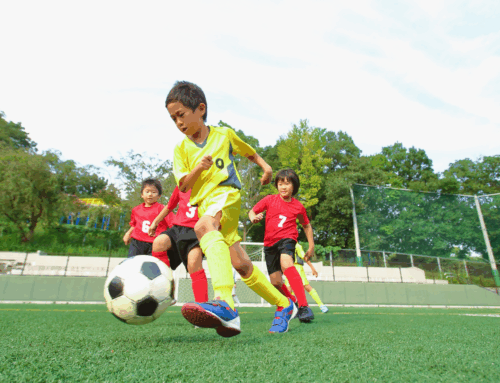Get our exclusive report. Download the iSport360 Club Switching Report Here – For Club Admins, Rec Leaders and Coaches.
7 Powerful Journaling Ideas for Youth Sports Athletes
Young athletes face unique challenges both on and off the field. While physical training gets most of the attention, developing mental skills through sports journaling can be the game-changer that separates good athletes from great ones. This comprehensive guide explores proven journaling techniques that help youth athletes improve performance, build confidence, and develop lifelong mental skills.
Why Sports Journaling Works for Young Athletes
Research shows that reflective writing improves athletic performance by enhancing self-awareness, emotional regulation, and goal achievement. For youth sports athletes, journaling provides a structured way to process experiences, track progress, and develop the mental toughness needed for competitive success.
1. Performance Reflection Journaling for Athletic Improvement
Post-game and post-practice reflection is one of the most effective journaling strategies for young athletes. This technique involves analyzing recent performances to identify strengths, weaknesses, and areas for improvement.
How to implement performance reflection journaling:
- Spend 10-15 minutes after each practice or game writing about your experience
- Focus on three key questions: What went well? What did I learn? What needs improvement?
- Document specific moments, skills, and decisions without harsh self-judgment
- Track patterns over time to identify consistent strengths and recurring challenges
Performance journaling helps youth athletes develop self-coaching skills and objective self-assessment abilities that accelerate improvement.
2. Goal Setting and Progress Tracking Through Sports Journals
Effective goal setting is crucial for youth athlete development. Sports journaling provides a powerful framework for setting, tracking, and achieving both short-term and long-term athletic goals.
Strategic goal-setting journaling techniques:
- Write specific, measurable goals for weekly, monthly, and seasonal timeframes
- Include both outcome goals (statistics, rankings) and process goals (technique focus, mental preparation)
- Track daily progress toward larger objectives
- Celebrate small wins and breakthrough moments
- Adjust goals based on progress and changing circumstances
Regular goal tracking through journaling increases motivation and accountability while building the planning skills young athletes need for success.
3. Emotional Processing and Mental Health Support
Youth sports can create intense emotional experiences, from game-winning moments to crushing defeats. Journaling provides a healthy outlet for processing these emotions and developing emotional intelligence.
Emotional journaling strategies for young athletes:
- Write about frustrations, disappointments, and anxiety before competitions
- Explore emotional triggers and develop personalized coping strategies
- Document proud moments and confidence-building experiences
- Practice emotional awareness and regulation through written reflection
- Process team conflicts and challenging coach-athlete relationships
This emotional processing builds resilience and mental health awareness that benefits athletes throughout their careers.
4. Team Dynamics and Leadership Development
Sports journaling helps young athletes navigate complex team relationships while developing leadership skills. Reflecting on team interactions builds emotional intelligence and social awareness.
Team-focused journaling prompts:
- How did I support teammates during challenging moments?
- What leadership opportunities did I take or miss?
- How can I improve communication with coaches and teammates?
- What kind of teammate do I want to be known as?
- How do I handle conflicts or disagreements within the team?
These reflections develop interpersonal skills that extend far beyond athletics.
5. Gratitude Practice for Athletic Resilience
Gratitude journaling is a proven technique for building a positive mindset and resilience in young athletes. Regular gratitude practice improves mental health and performance under pressure.
Effective gratitude journaling for youth sports:
- Write three things you’re grateful for in your sport each day
- Acknowledge supportive coaches, teammates, and family members
- Appreciate opportunities to compete and improve
- Find lessons and growth opportunities in defeats and setbacks
- Recognize your body’s ability to perform and recover
Gratitude practice shifts focus from scarcity to abundance, building the positive mindset essential for peak athletic performance.
6. Visualization and Mental Rehearsal Through Writing
Mental imagery is a cornerstone of sports psychology. Written visualization exercises help young athletes mentally rehearse success and prepare for challenging situations.
Visualization journaling techniques:
- Write detailed descriptions of perfect performance scenarios
- Mentally rehearse responses to pressure situations and setbacks
- Describe ideal pre-competition routines and mindsets
- Practice problem-solving through written scenarios
- Create positive self-talk scripts for challenging moments
This mental rehearsal builds confidence and improves actual performance through neurological preparation.
7. Learning from Athletic Role Models
Studying successful athletes provides valuable insights for youth development. Journaling about role models helps young athletes identify and develop important character traits and skills.
Role model analysis journaling:
- Write about athletes you admire and specific qualities that make them successful
- Analyze their mindset, work ethic, and approach to adversity
- Identify specific behaviors and attitudes you want to develop
- Create action plans for implementing observed strategies
- Track your progress in developing these admirable qualities
Making Sports Journaling Sustainable for Young Athletes
Consistency matters more than perfection in youth sports journaling. Here are practical tips for maintaining a sustainable journaling practice:
- Start with just 5-10 minutes daily
- Use prompts when feeling stuck or uninspired
- Keep entries private or share selectively with trusted mentors
- Focus on honesty over length or grammar
- Use digital apps or traditional notebooks based on preference
- Make journaling part of existing routines (post-practice, before bed)
Conclusion: Building Champions Through Reflective Writing
Sports journaling transforms young athletes into self-aware, mentally strong competitors who understand themselves and their goals. These reflective writing practices develop not just better athletes, but better people with skills that serve them long after their competitive careers end.
By implementing these seven journaling strategies, youth athletes can accelerate their development, improve performance, and build the mental skills necessary for success in sports and life. Start with one technique that resonates most, build the habit consistently, then expand to other areas as journaling becomes a natural part of athletic development.
iSport360 is the only app that does it all for youth sports. For more information on what we do, click here.
About the author:
Amy Masters is a sports mom, coach, and club administrator. She has been coaching youth sports for more than 10 years. She started Jr Lions Field Hockey, the youth recreation program for the Hunterdon County community, growing it from 40 players in year 1 to 150 players by year 3. A few years later, she saw the love and competitiveness grow, and then started Omega Field Hockey Club serving NJ and PA players. Before coaching, she was a collegiate field hockey player for Lock Haven University. In her spare time (lol), she is head of marketing for iSport360 and the co-editor of the Youth Sports Survival Guide. The Youth Sports Survival Guide is the largest youth sports newsletter in the world.
Learn more or request a demo of our youth sports software that is helping teams improve communication, organization and player development.
June 1, 2025





